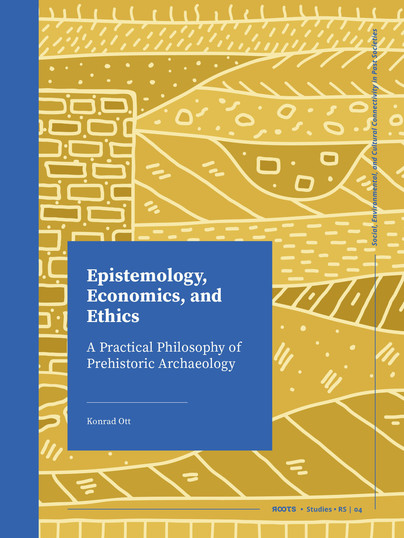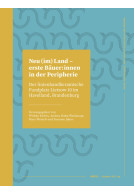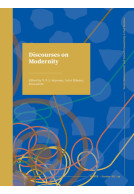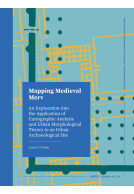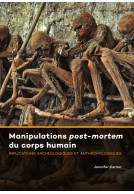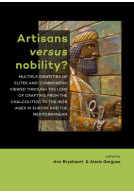Google Books previews are unavailable because you have chosen to turn off third party cookies for enhanced content. Visit our cookies page to review your cookie settings.
Epistemology, Economics, and Ethics (Hardback)
A Practical Philosophy of Prehistoric Archaeology
Imprint: Sidestone Press
Series: ROOTS Booklet Series
Pages: 256
ISBN: 9789464270822
Published: 29th December 2023
Script Academic & Professional
Series: ROOTS Booklet Series
Pages: 256
ISBN: 9789464270822
Published: 29th December 2023
Script Academic & Professional
You'll be £95.00 closer to your next £10.00 credit when you purchase Epistemology, Economics, and Ethics. What's this?
+£4.99 UK Delivery or free UK delivery if order is over £40
(click here for international delivery rates)
Order within the next 43 minutes to get your order processed the next working day!
Need a currency converter? Check XE.com for live rates
(click here for international delivery rates)
Order within the next 43 minutes to get your order processed the next working day!
Need a currency converter? Check XE.com for live rates
This book is intended to be a groundwork of how to theorise prehistory and archaeology and how to make connectivities between the past and the present. It is divided into four parts. The first part is epistemological. It explains why there must be theoretical investments if past ways of human life are to be understood and explained. This insight is specified to a ladder-model (sensu Hawkes) with conceptual scaffoldings on each step. Stepwise, sets of concepts are introduced. This constitutes a reflective turn for archaeologists by showing how theoretical investments can be justified, substantiated and rejected. The second part makes a specific investment: original historical materialism. It claims that the Neolithic transformation makes humans economic agents. Stepwise, economic agency and its categories must have come to mind to earlier humans once they started to “produce”. This part harbours Marx’s idea that modern economic theories help to explain archaic economic activities. The third part claims that the Anthropocene originates within the Neolithic transformation. A chorus song of Sophocles is taken as an intellectual spike of the early Anthropocene. Crucial qualitative achievements of the Neolithic transformation can be expanded in their quantities without intrinsic limitations. Under modern boundary conditions, such expansions transform into the “Great Acceleration”. If so, the current trajectories of growth have deep roots. Given this ongoing transformation into the Anthropocene, a concept of responsibility becomes unavoidable. This concept grounds the fourth part that asks for ethical principles for a “good” Anthropocene in different fields of policy-making. A focus is laid on adaptation to climatic change. Some ethical building blocks for a second axial age are proposed. The book concludes with reflections upon heterarchical modes of life and upon the lifeworld of practical reasons.
Other titles in the series...
Other titles in Sidestone Press...







